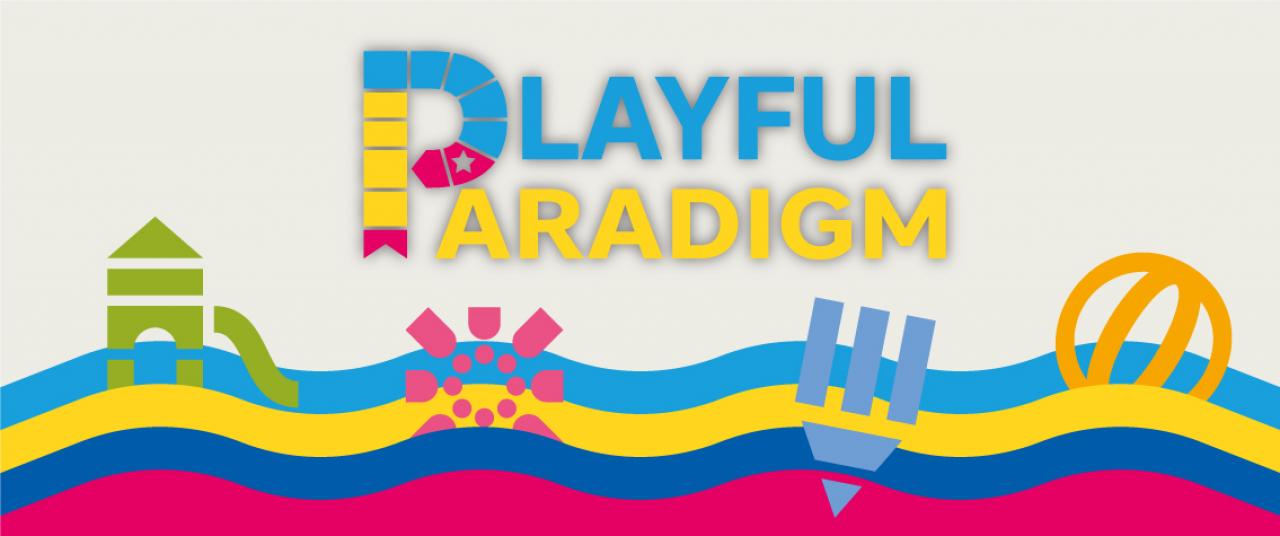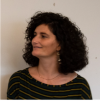Ileana Toscano, lead expert
Playful Paradigm II is a “transfer” network stems from the long-time experience developed in the City of Udine (Italy) focused on play as a tool to foster social inclusion and participation.
In 2017 the European Union programme called URBACT labelled Udine “Good Practice City” thanks to the play approach developed at city level. URBACT funded two project editions of Playful Paradigm, where Udine led the two Networks to transfer to other EU cities the play-based philosophy and approach. In total, 12 European cities were involved in reflecting about play. The first project edition have seen involved as transfer cities: Klaipeda (LT); Esplugues de Llobregat (ES); Viana do Castelo (PT); Novigrad (HR), Cork (IE), Larissa (HR), Katowice (PL). While in the second project wave, the transfer partners are: Grosuplje in Slovenia, Jelgava in Latvia, Lousa in Portugal and Igualada in Spain.
The experience of the URBACT Network “Playful Paradigm” offered the opportunity to reflect on the strictly relation between “play and cities”. Play is essential for children’s health, physical-and emotional growth, and intellectual and educational development. But in cities, especially in suburbs, children do not have adequate spaces for playing and play poverty is on the rise, as is the number of children living low-play lives. Public spaces should be re-designed to welcome play and reflect values of democracy, respect, and solidarity. Play can support the urban planning activity by transforming public spaces through play place making initiatives and fostering citizens participation. In other words, well-planned cities foster play and play supports this positive city transformation through playful initiatives.
Why PLAY is important to trigger Participation and transform Urban Public spaces?
Play is a versatile tool to easily engage with children and families, also in difficult contexts such as suburbs or deprived neighbourhoods. The Municipality of Udine get awarded about this huge potential of play more than twenty years ago, when they started to promote play through the Ludobus-initiative - a mobile toy-library used to promote play activities both in the suburbs and in the city centre. They have had the opportunity to experiment Ludobus as a powerful tool of inclusiveness, because there are no barriers of culture, languages, gender or age while playing.
Udine experienced that the Ludobus can transform public spaces making them places for play. The Ludobus brings an important message: “all spaces of a city are places for play”, “all public spaces are spaces for children and for all”. Ludobus is a catalyst: people start playing without being address and previously informed. Ludobus is also a tool to reach families and involve them in participatory urban processes.
Having discovered the social impact of play at city level, the Municipality of Udine set up a municipal office dealing with play. Thanks to that, the city has becoming lead city of play in Italy and Europe and it has been able to manage several play initiatives, as: setting up a toy library, collaborating with schools and educational centers, developing healthy programmes through play for elderly people and people with special needs, organising several play events in the city, preventing gambling problems through dedicated play programmes, opening the National Archive of Game and, of course, managing the ludobus activities.
Inspired by Udine, the Playful Paradigm partners started to experiment play outside playgrounds, organising play initiatives in their city. They organised temporarily closure of streets to cars, to allow people play and stay together. They transformed urban spaces in places for play: the areas in front of schools, that allow pupils play before going to school, the market streets, that can host children and family in a relaxed atmosphere, and so on. All city partners organised the World Game Day on 28 May 2022, experimenting the intergenerational approach and learning process fostered by play for children and adults.
Playful Innovations for cities
Considering the experience of the first project edition and the long experience of Udine, the second wave of Playful Paradigm followed on four dimension of the play approach aiming at further enhancing Playful Paradigm by fostering the inclusion of marginalised communities and promoting the gender based approach to re-think public spaces. That are:
- PLAY FOR SUSTAINABLE URBAN REGENERATION analyses the possibility offered by play to re-think urban public spaces. Starting from the Ludobus initiative and the play placemaking experiences, it addresses the gender sensitive approaches about public spaces and playgrounds and the intergenerational approach to include older people and adolescents in city life.
- PLAY FOR INCLUSION & PARTICIPATION seeks to develop a new concept for Toy Libraries looking at novel opportunities to transform them into inclusive living labs.
- PLAY FOR EDUCATION focuses the attention on the innovative approach in education by providing playful experiences both in formal and informal learning environments.
- PLAY FOR HEALTH AND WELLBEING promotes an integrated approach – social, economic and environmental - through the “WHO Healthy Cities” philosophy, involving Project Partners in a co-creation of novel solutions to foster health and wellbeing in local communities.
Among them, two innovations in promoting play have been followed up by Playful Paradigm second wave: the Gender sensitive playgrounds & Urban Public spaces & the Toy Libraries as living labs.
The re-design of play places like “school yards, playgrounds and recreational spaces” through a gender sensitive approach can provide an important contribution to deconstruct gender stereotypes and the inequalities starting from early age. The redesign of play places should prioritise gender neutral colours and multiple play ‘worlds’, as opposed to one central, that promote interaction between girls and boys and versatile space uses. It should foster creativity and engage with nature, as well as sports and active games. In this way, children can choose the way they play without the pressure of conforming to stereotypes.
Toy Libraries are key within new innovative and more dynamic urban policies reflecting the huge demographic change happening in societies. Toy Library helps meeting different objectives: promoting play, educating children but also supporting families. In deprived neighbourhoods when the street means the only option kids have to socialize, Toy libraries can help families keep kids away from the dangerous exposure to petty crimes or drugs.
The Playful Paradigm promotes the concept of Toy libraries as hands-on public spaces addressing novel opportunities of participation, equality, and intergenerational learning.
They can be improved by Local Administrations and transformed in truly “inclusive living labs” to engage with all citizens, families, boys and girls, elderly people, children, and adults, taking care to leave no one behind. Toy Library-Living Lab can be a new home for families positioned in the centred the needs of children, girls and boys and their parents, with a special attention to those in the fringe.
Playful Paradigm Alliances!
Playful Paradigm has been promoting the collaboration between cities not just at the transnational project level but also at local and national level. Thanks to Playful Paradigm local alliances were boosted, aimed at promoting play urban policies. In Catalunya, Igualada (2nd Wave), Esplugues de Llobregat (1st Wave) and Barcelona started to collaborate to share play approaches and co-design city play plans. In Ireland, the city of Cork has been leading a network focused on play as cascade effect of Playful Paradigm. Jelgava Local Municipality in Latvia and the Municipality of Klaipeda in Lithuania have shared a play strategy to promote the “Play for Education”approach in schools.
Moreover, the Playful Paradigm cities has been collaborating with other cities and international organisations, such as: UN agencies, EU partners, Private organisations, Arup, LEGO, etc.
Have a look at the Final Product HERE


